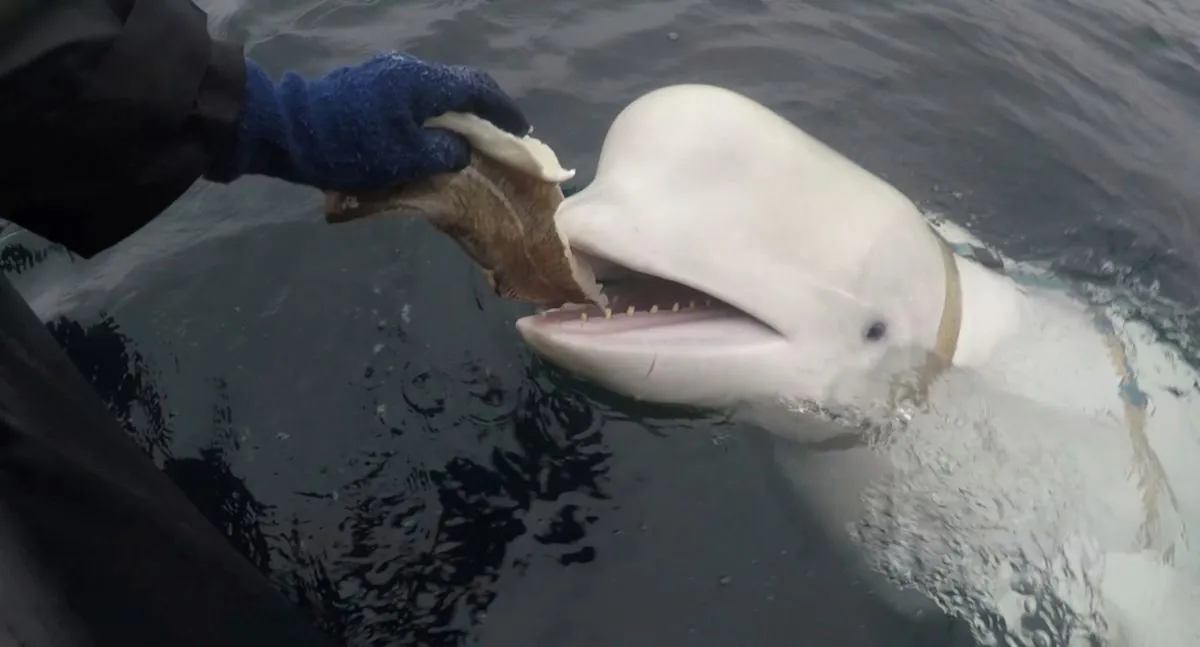Mystery Surrounds Death of Famous Norwegian Beluga Whale "Hvaldimir"
A well-known beluga whale found dead in Norway sparks controversy. Police find no evidence of shooting, contradicting animal rights groups' claims. The whale's origin and purpose remain subjects of speculation.

In a recent development that has captured international attention, the famous beluga whale known as "Hvaldimir" was discovered lifeless in Risavika Bay, southern Norway, on August 31, 2024. This finding has reignited discussions about the mysterious cetacean's origins and purpose.
Hvaldimir, whose name cleverly combines the Norwegian word for whale (hval) with the first name of Russian President Vladimir Putin, first appeared in 2019 near Russian waters. The whale's friendly demeanor and a harness bearing the inscription "Equipment St. Petersburg" led to widespread speculation about its possible connection to Russian naval operations.
Animal rights organizations OneWhale and NOAH initially claimed that Hvaldimir had been intentionally killed, citing apparent wounds on the carcass. However, the Norwegian police have refuted these allegations based on preliminary autopsy results conducted by the Norwegian Veterinary Institute.

According to the police statement, there is no evidence suggesting that Hvaldimir was shot. The visible injuries were primarily superficial, with only one slightly deeper wound that did not affect vital organs. X-ray examinations revealed no projectiles or indications of gunshot-related injuries.
Interestingly, the autopsy did uncover a 35-centimeter long stick lodged in the whale's mouth, and its stomach was found to be empty. These findings add to the mystery surrounding Hvaldimir's demise.
Preede Revheim, head of the North Sea and environment section of the police in South Western Norway, stated that there is currently no evidence linking human activity directly to Hvaldimir's death. The final autopsy report is expected to be released later this month.
The beluga's story has captivated the public since its first appearance. Belugas, known for their distinctive white color and melon-shaped foreheads, are highly social animals typically found in Arctic and sub-Arctic waters. These "sea canaries," as they're sometimes called due to their wide range of vocalizations, have been known to mimic human speech patterns and have been successfully trained for various purposes.
Hvaldimir's friendly interactions with humans and apparent training led to speculation about its possible roles, ranging from a military asset to a therapy animal. This aligns with the known capabilities of beluga whales, which have been kept in captivity and trained for different tasks.
As the investigation continues, animal rights groups remain unsatisfied with the preliminary results. They have offered a reward of 50,000 kroner (approximately $4,661) for any information that could lead to reopening the case.
The mystery surrounding Hvaldimir's life and death serves as a reminder of the complex relationship between humans and marine life. As we await further details, the story of this unique beluga continues to intrigue and raise questions about the ethical implications of training wild animals for human purposes.


































